Anyone who watched The Wire on HBO might think of Baltimore as a very poor city with a lot of problems. Of course, they would not be wrong, but when compared to Philadelphia in the chart below, we see that it’s a bit more complex than that. Baltimore actually has a lower poverty rate (22.7 percent versus 26.4 percent) and a higher median income ($42,241 versus $38,253). These figures align with Baltimore’s slightly higher graduation rate.
As always, my wingman on these comparisons is Professor Richardson Dilworth of Drexel’s Center for Public Policy, and it turns out that Dilworth got his doctorate in Baltimore at Johns Hopkins University. He says that one of the most interesting comparisons between Baltimore and other cities is how the city has historically handled the issue of race.
Dilworth reached out to Hopkins Professor Emeritus Matthew Crenson—once his own academic advisor—who has long advanced some interesting notions about Baltimore and race, namely that, the unrest following Freddie Gray’s arrest and death notwithstanding, the city has long been a unique place where race is generally not a political issue.
“Other cities practiced the politics of confrontation and demonstration,” Crenson says. “In Baltimore, you didn’t demonstrate; you didn’t use violence. Some people will argue that they experience racial conflict every day, which is probably true. My question is, ‘Does it break through to politics?’”
Dilworth walked me through Crenson’s primary argument. “It’s really a historical one,” Dilworth says. “Prior to the Civil War, white elites in Baltimore were either Southern planters or Quaker merchants—like Johns Hopkins himself. Given this elite makeup, it simply wasn’t polite to talk about slavery or abolition, so the issue of race was something that just never got discussed. And Baltimore had one of the largest free black populations prior to the Civil War. So black people in Baltimore spent most of their time organizing into their own political factions and not uniting around a common racial identity.
So race, in the sense of black versus white interests, did not develop as a political dynamic the same way it did in other cities. Even the black leaders produced by Baltimore were not folks like Martin Luther King, Stokely Carmichael or Huey Newton, who focused on conflict and race-based politics. Instead, Baltimore produced black political leaders who focused on the courts or lobbying, such as Thurgood Marshall and Clarence Mitchell. That’s why, after Brown v. Board of Education, Baltimore rapidly desegregated with hardly any public discussion at all.”
Baltimore Idea To Steal: Humility (Not Insecurity)
There were a number of contenders this week for an idea to steal. For example, you’ve got to love the way Kevin Plank, Founder and CEO of Baltimore-based UnderArmour, has stepped up for his hometown. He’s spearheading a public/private $5.5 billion redevelopment project that would see UnderArmour build a new, state-of-the-art campus adjacent to 42 blocks of new housing, retail and office space, transforming an industrial brownfields site.
And you’ve got to love that, in response to last year’s riots, Maryland Legal Aid and the Enoch Pratt Free Library started hosting a weekly Lawyer In The Library program. Every Tuesday, volunteer lawyers are available for two hours to meet with citizens and answer questions on topics ranging from housing concerns to consumer issues to civil liberties.
But Professors Dilworth and Crenson point to something less tangible that is worthy of delving into: Baltimore’s sense of collective humility.
“Native son Russell Baker referred to the city affectionately as ‘The City of Losers,’” Crenson says. “He said that it was a good thing because it gave Baltimoreans a tolerance for human failings, moral and otherwise, that other places don’t have.”
A key part of that no doubt stems from what we here in Philadelphia also pride ourselves on: Unique neighborhood cultures. When, decades ago, Crenson wrote Neighborhood Politics, a primer on Baltimore’s political history, he discovered what set the city apart. “In the introduction, I compared the number of neighborhoods with other cities of roughly similar populations,” he says. “Baltimore is an outlier, even today. Philadelphia, with almost three times the population of Baltimore, has 156 neighborhoods. Baltimore has 300, and those 300 neighborhoods give us cultural complexity. What other city could inspire Hairspray, The Wire and Diner?”
Here in Philadelphia, where social critics often describe us as “insecure” when comparing ourselves to New York or Washington, D.C., Baltimore’s cultural embrace of the richness of its diverse neighborhoods is worth keeping in mind. Crenson often finds himself telling citizens of other cities what the best thing is to steal from Baltimore: “Our humility,” he says.
Results
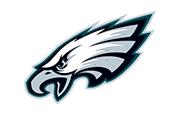
PhiladelphiaEagles |
|
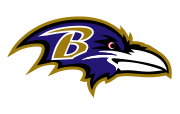
BaltimoreRavens |
|
# of B Corporations
27 |
7 POINTS
Eagles |
# of B Corporations
3 |
|
% Graduated high school in last school year
65 |
7 POINTS
Ravens |
% Graduated high school in last school year
68.5 |
|
Diversity Index
0.34 |
7 POINTS
Eagles |
Diversity Index
0.47 |
|
% Bike to work
1.9 |
7 POINTS
Eagles |
% Bike to work
0.7 |
|
% Acres of park space
13 |
7 POINTS
Eagles |
% Acres of park space
9.6 |
|
Violent crime per 1,000 residents
10.2 |
7 POINTS
Eagles |
Violent crime per 1,000 residents
13.4 |
|
% Voted in last mayoral election
25.5 |
7 POINTS
Eagles |
% Voted in last mayoral election
12 |
|
% Below poverty
26 |
7 POINTS
Ravens |
% Below poverty
23.6 |
|
Public transportation score
67 |
7 POINTS
Eagles |
Public transportation score
58 |
|
Final Score
49 |
Philadelphia
Eagles |
Final Score
14 |
Sep. 11 |
63-0
Eagles |
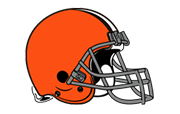
Browns |
Sep. 19 |
28-35
Bears |
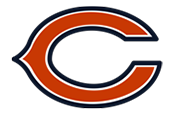
Bears |
Sep. 25 |
35-28
Eagles |
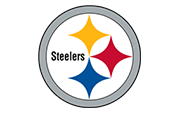
Steelers |
Oct. 09 |
63-0
Eagles |
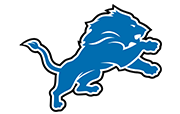
Lions |
Oct. 16 |
28-35
Redskins |
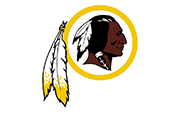
Redskins |
Oct. 23 |
28-35
Vikings |

Vikings |
Oct. 30 |
35-28
Eagles |

Cowboys |
Nov. 06 |
14-49
Giants |

Giants |
Nov. 13 |
56-7
Eagles |
Falcons |
Nov. 20 |
35-28
Eagles |

Seahawks |
Nov. 28 |
35-28
Eagles |
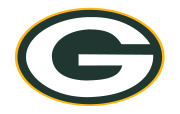
Packers |
Dec. 04 |
35-28
Eagles |
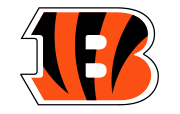
Bengals |
Dec. 11 |
28-35
Redskins |

Redskins |
Dec. 18 |
49-14
Eagles |

Ravens |
Dec. 22 |
14-49
Giants |

Giants |
Civic Record:
EAGLES |
Wins
9 |
Losses
4 |
Upcoming Games:
For more information on this data, see the Civic Season Explained page.
Note: The Eagles play Washington, D.C., New York and Dallas twice this season, but we only count each city once in the Civic Record.



